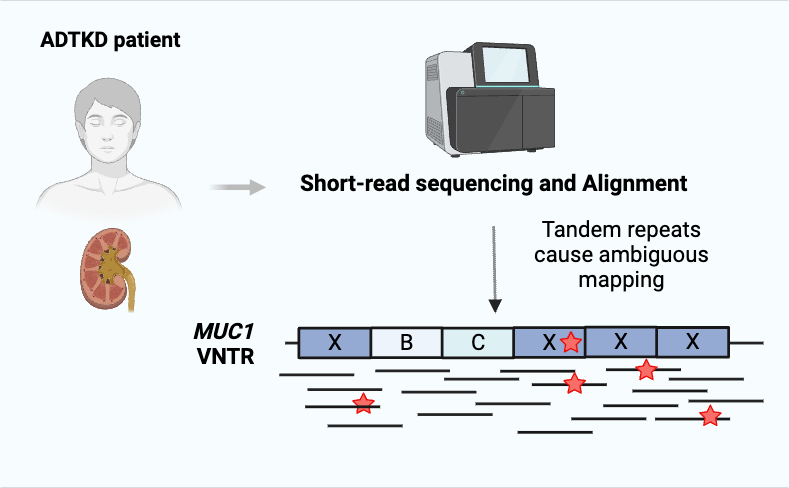Autosomal dominant tubulointerstitial kidney disease (ADTKD) is a hereditary condition characterized by progressive tubulointerstitial fibrosis with or without tubular dilation and atrophy, eventually leading to end-stage kidney failure. The affected individuals present mild to negative proteinuria, and bland urinary sediment abnormalities, with normal kidney size. A positive family history is commonly reported for this disease. Molecular genetics play a key role in diagnosing and classifying ADTKD given their non-specific presentations. Pathogenic variants in different genes, including MUC1, UMOD, HNF1B, REN, and SEC61A1, are known to be responsible for ADTKD. The absence of a mutation does not rule out ADTKD, as other loci remain to be identified. The recent advancements in high-throughput sequencing technology and the pan-genome graph pipelines have improved the diagnostic rate of Mendelian and multigenic complex diseases. However, some challenges remain for accurately detecting pathogenic variants in genes with complex structures. For instance, the detection of variants in the coding variable number tandem repeat (VNTR) region of the MUC1 gene (encoding the mucin-1 protein) responsible for autosomal dominant tubulointerstitial kidney disease-MUC1 (ADTKD-MUC1) is a real issue.
VNtyper 2.0 is an advanced pipeline designed to genotype MUC1 coding Variable Number Tandem Repeats (VNTR) in Autosomal Dominant Tubulointerstitial Kidney Disease (ADTKD-MUC1) using Short-Read Sequencing (SRS) data. This version integrates enhanced variant calling algorithms, robust logging mechanisms, and streamlined installation processes to provide researchers with a powerful tool for VNTR analysis.
We have developed a web server to provide free access to VNtyper, which runs in the background for ease of use. Access it through the following link: https://vntyper.org/
